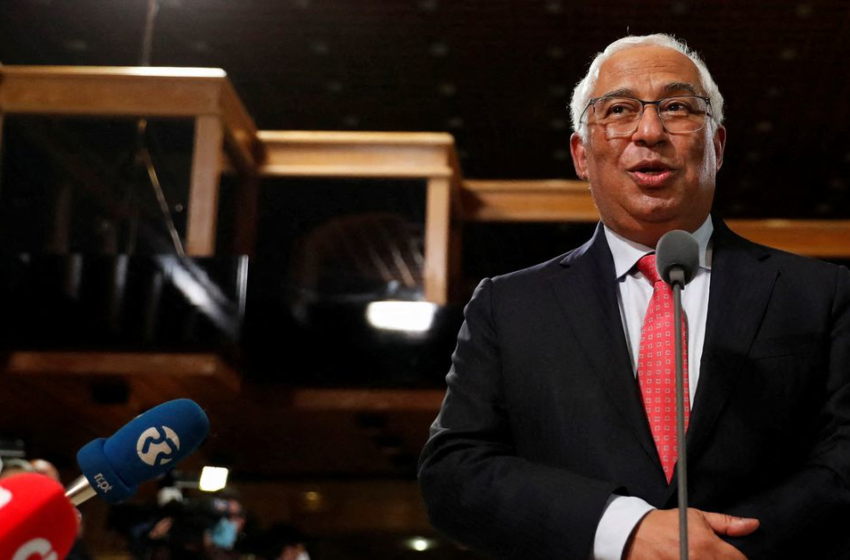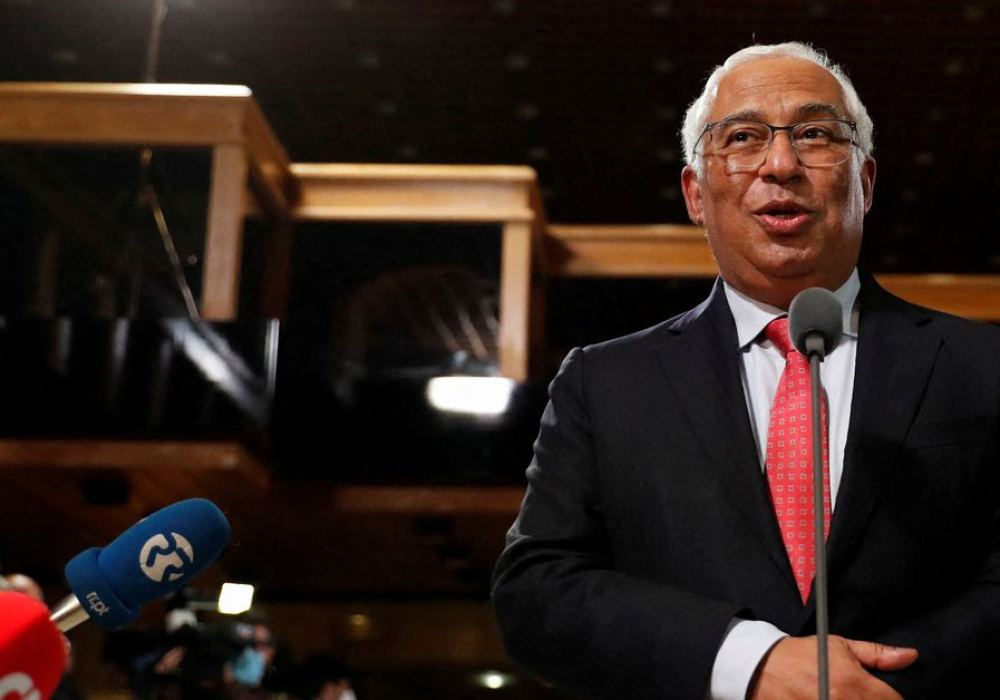LISBON, Jan 30 (Reuters) – Portugal’s ruling Socialists looked set to win the most votes, and possibly an outright majority, in Sunday’s snap general election, exit polls showed, triggering celebrations in Prime Minister Antonio Costa’s election headquarters.
The result, boosted by a higher than expected turnout despite the coronavirus pandemic, comes as a surprise after the Socialists had lost most of their advantage in recent opinion polls, and could signal a chance for Portugal to have a stable government, contrary to most expectations.
As exit polls came out on TV screens showing the Socialist Party in the 37%-42.5% range – well ahead of the main centre-right opposition Social Democrats at 26.7%-35% – Socialist supporters shouted “Victory, victory!”.
Register now for FREE unlimited access to Reuters.com
Register
“I’m so happy. The exit polls were better than expected so I’m confident…this way they (Socialists) will be able to continue the great work they have been doing,” said Constanca Reis, 24, one of the supporters.
Costa, who came to power in 2015 in the aftermath of a 2011-14 debt crisis, has presided over a period of steady economic growth that helped shrink the budget deficit and even eke out a small surplus in 2019, before the pandemic struck.
Still, Portugal remains western Europe’s poorest country and relies on EU pandemic recovery funds.
POTENTIAL ALLIANCES
The far-right Chega, at 4.5%-8.5%, could emerge as the third-largest parliamentary force, but is closely followed by the moderate Liberal Initiative, according to the polls published by the three main television channels SIC, RTP and TVI.
If the Socialists do not secure an outright majority but come close to the 116 seat threshold, Costa could try to seal a pact for support with two small ecology-minded parties, PAN and Livre.
Costa, who is yet to deliver his victory speech, told SIC on Friday he would be open to negotiate alliances and “govern on the conditions that Portuguese define…as soon as I know which eggs I’ve got to make an omelette.”
The vote was called in November after his hard-left Communist and Left Bloc allies joined the right in striking down his minority government’s budget. Costa will now get a new chance at forming a government and approving the 2022 spending plan. read more
The Left Bloc and Communists lost a large share of their votes compared to the previous election in 2019.
A stable government would bode well for Portugal’s access to a 16.6-billion-euro ($18.7 billion) package of EU pandemic recovery aid and its success in channelling funds into projects to boost economic growth.
With more than a tenth of Portugal’s 10 million people estimated to be isolating due to COVID-19, the government had allowed infected people to leave isolation and cast ballots in person, and electoral officials donned protection suits in the afternoon to receive them.
Turnout was on track to beat 2019’s record low 49% participation, after almost 46% of those eligible had voted by 4:00 pm, more than the 39% recorded at the same time in 2019, official data showed.
As in many European countries, infections have spiked, although vaccination has kept deaths and hospitalisations lower than in earlier waves.
Register now for FREE unlimited access to Reuters.com
Register
Writing by Andrei Khalip, additional reporting by Miguel Pereira; editing by Peter Graff and Chizu Nomiyama
Our Standards: The Thomson Reuters Trust Principles.











